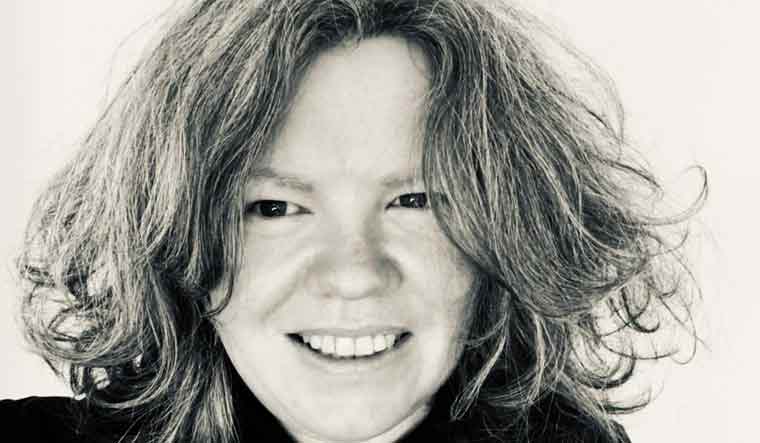The month of June celebrates queer life and creativity. To this end, the Kolkata Centre for Creativity (KCC) has lined up a series of online exhibitions and webinars called "Learn Togetherness" that will run till 27 June.
Supported by the British Council with Sappho for Equality as a partner, the festival seeks to better understand the use of art in questioning oppressive gender norms and reclaim spaces beyond the binary.
Photography, painting, sculpture, music, poetry, dance and theatre are all employed to reinforce equity, acknowledgement and acceptance of varying sexual and gender identities. Ruth McCarthy, queer activist and artistic director with the Outburst Queer Arts Festival in Belfast, talks to THE WEEK about the pioneering LGBTQ+ festival she helms in the run-up to her appearance at Learn Togetherness.
What is the significance of the Outburst festival and how is it different from the way other queer arts festivals are curated?
Outburst supports development and opportunities for queer artists to make and share exciting work that stimulates important conversations. That has an important social role around visibility and catalysing positive change but it’s key that the art and performance work is first and foremost as compelling and engaging for audiences as any other art you’d see or experience in theatres, cinemas and other spaces.
That’s what brings audiences to it and what empowers us as queer people. We are very responsive in our curating rather than swayed by trends, always asking the question, “What is the most exciting work for this moment and what do artists need from us to make that work happen?”
Can you tell us about some of the interesting acts at the festival in recent years and how they engaged with contemporary LGBTQIA issues in the UK?
There are so many but some recent exciting works include a new opera, "Abomination: A DUP Opera" by composer Conor Mitchell that challenged our ruling political party’s record around LGBTQ+ issues by using their anti-LGBT comments to form the libretto. That won many awards and accolades nationally and highlighted the troubling relationship between political power and homophobia. On a different scale [was] "I/ Mother", a one-woman show by Gemma Hutton, [that] explored being a lesbian parent.
Another show, "Stories for the Month of the Holy Souls" by storyteller Richard O’Leary, gave a very moving perspective on grief and the homophobia encountered when a partner of the same sex dies. Another area I feel very passionate about is transgender voices and stories on the stage, so we developed a programme for trans writers and performers that is supporting new trans talent to emerge.
Is there an India edition of Outburst on the anvil?
We love working collaboratively with international partners but it's more important, and more empowering, for Indian artists and community activists to make their own version of a festival or event like Outburst that is more fitting for their own cultural and social contexts. That would be exciting to experience and we are very happy to support that however, we can. We also want to learn from artists and communities in Kolkata and other cities in India because there’s talent and knowledge there that’s exciting to bring to other parts of the world.
How have LGBTQIA rights and queer activism evolved in the UK in recent years? What are its most pressing concerns or battles yet to be fought?
Northern Ireland has some similar concerns to other countries in the UK but it’s also socially, economically and politically different and has quite different priorities to places like London or Edinburgh. It has historically been more conservative socially and politically here and equality legislation has been slower to change. But we’re also at an exciting time around inclusion and asking questions about the importance and value of embracing difference.
Some of the big issues impacting LGBTQ+ people in all regions, and across the world, are transgender rights and healthcare, LGBTQ+ education in schools, mental health and wellbeing issues, issues around ageing and care for elders, loss of LGBTQ+ community and social spaces and the impacts of race, gender and class. Despite much welcome legislative changes, there are many hidden social and political issues that we need to address, plus wider questions around power and resources generally for people who are considered “different”
Can you talk about queer arts festivals that you have attended in India and some of your takeaways from the events? What is your take on the depiction of LGBT concerns in the arts and entertainment space of India? Any recent work of theatre, music, cinema, news feature that intrigued you?
I’m aware that India has many LGBTQ+ festivals and artists but have only recently started exploring contemporary LGBT / queer arts there more deeply through our work with British Council.
Festivals like Rainbow Lit Fest and the many queer film festivals in the country have been doing great work for a while now. I’ve always loved well known Indian visual artists like Sunil Gupta and Bhupen Khakhar who explored homosexuality in their work over many decades, along with many LGBT Indian writers and poets who I’ve admired. Explorations of gender and sexuality in everything from ancient texts to Bollywood film are also fascinating to me. There’s so much rich material and experience for artists to draw on in Indian cultures, past and present, that offers a deeper understanding of gender and sexuality beyond just the “western” constructs, so I’m very excited by the wider learning in that and can’t wait to explore and share more around what queer artists in India are already doing.



